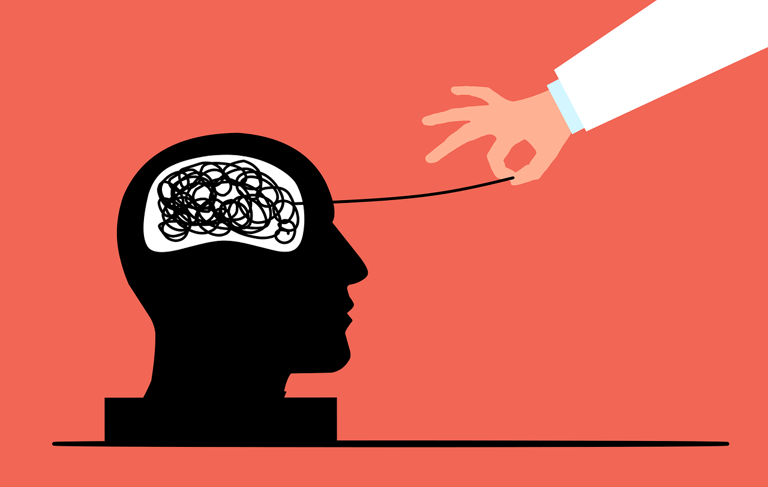Understanding Individual Therapy
Learn how individual therapy can help you overcome challenges and improve mental health. Discover how individual therapy can provide support and growth for clients seeking personal growth... Read more


Unlocking Personal Growth
How Individual Therapy Can Transform Your Life
In the journey of life, we all encounter challenges that test our resilience and well-being. Whether it's navigating through anxiety, depression, stress, or simply trying to understand ourselves better, these struggles can sometimes feel overwhelming. This is where individual therapy can make a significant difference.
What is Individual Therapy?
Individual therapy is a collaborative process where you work one-on-one with a therapist to explore your thoughts, emotions, and behaviors. This personalized approach allows you to delve deep into the areas of your life that you find challenging, with the support of a trained professional who is dedicated to helping you achieve your goals.
How Can Individual Therapy Help?
Personalized Care and Attention Individual therapy offers a tailored experience, focusing on your unique needs and concerns. As a counsellor, I use various therapeutic approaches, including Cognitive Behavioral Therapy (CBT), Acceptance and Commitment Therapy (ACT), and narrative therapy. By integrating these methods, I ensure that each session is customized to address your specific situation.
Building Self-Awareness Through individual therapy, you'll gain a deeper understanding of your thoughts, emotions, and behaviors. Narrative therapy, for instance, helps you explore the stories you tell yourself about your life and identify how these narratives shape your experiences. By becoming more aware of these internal stories, you can begin to rewrite them in ways that empower you.
Developing Effective Coping Strategies Life's challenges often require us to adapt and find new ways to cope. In therapy, you'll learn practical skills to manage stress, anxiety, depression, and other mental health issues. CBT, for example, focuses on identifying and challenging negative thought patterns, helping you develop healthier ways of thinking and reacting to life's obstacles.
Fostering Emotional Resilience Therapy isn't just about addressing problems; it's also about building resilience. ACT, for instance, emphasizes accepting your thoughts and feelings rather than fighting them, and committing to actions that align with your values. This approach helps you develop the emotional strength to navigate life's ups and downs with greater ease.
Enhancing Relationships Our relationships with others often mirror our relationship with ourselves. By working on self-awareness, emotional regulation, and communication skills in therapy, you'll find that your interactions with others can improve as well. A more profound understanding of yourself can lead to more fulfilling and meaningful connections with those around you.
Online vs. Face-to-Face Therapy: Which is Right for You?
In today’s digital age, therapy has evolved to offer greater flexibility, allowing you to choose between online and face-to-face sessions. Each option has its unique benefits, and the choice ultimately depends on your personal preferences and circumstances.
Face-to-Face Therapy: This traditional approach provides a physical presence and connection that some clients find essential for building trust and rapport. It allows for more nuanced communication, including body language and facial expressions, which can enhance the therapeutic process. If you prefer a structured environment away from distractions and value in-person interaction, face-to-face therapy might be the best option for you.
Online Therapy: Online sessions offer convenience and accessibility, especially for those with busy schedules, mobility issues, or living in remote areas. It allows you to receive therapy from the comfort of your home, which can be comforting and reduce barriers to accessing care. If you value flexibility, have a tight schedule, or prefer the ease of attending sessions from anywhere, online therapy could be a great fit.
How to Choose?
Consider your lifestyle, comfort level, and specific needs when deciding between online and face-to-face therapy. If you're unsure, you might start with one method and see how it feels. Remember, the most important factor is your comfort and willingness to engage in the therapeutic process, whichever format you choose.
Why Choose Individual Therapy?
Individual therapy provides a safe and confidential space where you can explore your innermost thoughts and feelings without judgment. It's an opportunity to work through personal challenges at your own pace, with the guidance and support of a therapist who is committed to your growth and well-being.
Whether you're struggling with a specific issue or simply want to better understand yourself, individual therapy can be a powerful tool for personal growth. As a therapist who uses an integrative and client-centred approach, I'm here to support you on your journey towards greater self-awareness, resilience, and fulfilment.
